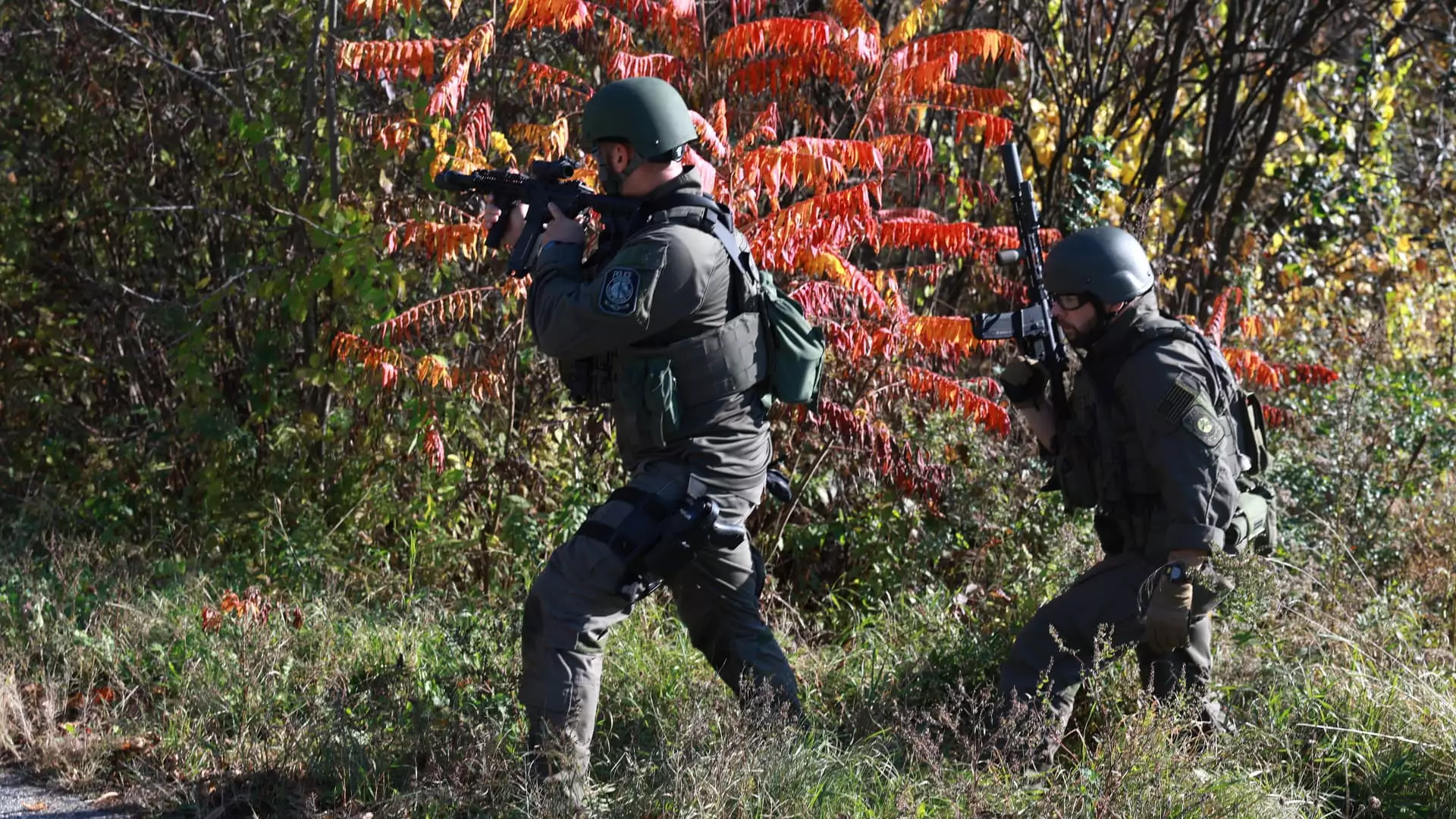The search for the man responsible for a mass shooting at a bowling alley and bar in Maine came to a tragic end on Friday. Governor Janet Mills confirmed that the suspect, Robert Card, was found dead in Lisbon Falls from an apparent self-inflicted gunshot wound. Card’s body was discovered at a local recycling facility where he had recently worked, according to a law enforcement official. The news conference held by Governor Mills and Commissioner Mike Sauschuck provided a somber conclusion to a search that had put the entire state on edge for the past two days.
Robert Card, a 40-year-old U.S. Army reservist, had undergone a mental health evaluation in mid-July after exhibiting erratic behavior during training. The evaluation came after Card had made threatening statements about shooting up a military base and hearing voices. He was committed to a mental health facility for two weeks but was later released. The fact that Card had firearms training raised concerns about the potential for violence. Despite the evaluation and subsequent release, Card was able to carry out the mass shooting, leaving 18 people dead and 13 injured.
Over the course of the two-day search, authorities employed various tactics to locate Card. Dive teams with sonar searched the bottom of a river, law enforcement officers scoured the woods and hundreds of acres of property, and a possible suicide note was scrutinized. The intensity of the search and the efforts made by law enforcement underscored the gravity of the situation and the determination to bring the suspect to justice. The community, both online and offline, expressed shock, grief, and anger in response to the tragic events.
The State Public Safety Commissioner, Mike Sauschuck, released the names and pictures of the 16 males and 2 females who lost their lives in the shooting. Ranging in age from 14 to 76, the victims’ identities painted a picture of a diverse group of individuals who were taken from their loved ones too soon. The devastating impact of the shooting was felt deeply within the community, as expressed in an online vigil held on Friday evening. Residents lit candles and shared their grief, highlighting the personal connections many had with the victims.
As the investigation into the mass shooting continues, authorities are analyzing various aspects of Card’s life, including his financial information, social media posts, writings, and mental health history. Federal agents conducted searches of properties associated with Card, collecting items such as electronics. A gun was found in Card’s car, discovered at a boat ramp, and is currently being tested to determine if it was used in the shooting. The recovery of a suicide note addressed to Card’s son raised questions about the motive behind the shooting but provided no specific answers.
The shocking nature of the mass shooting reverberated throughout the state of Maine, a close-knit community with only 1.3 million residents and a typically low homicide rate. Governor Mills acknowledged that many Maine residents personally knew the victims, emphasizing the impact the tragedy has had on the entire state. Schools, public buildings, and businesses remained closed to mourn the loss. The shootings at the bowling alley and bar serve as a painful reminder of the pervasive issue of gun violence in the United States, with this incident marking the 36th mass killing in the country this year.
Despite the immense pain and grief caused by the mass shooting, the community in Maine remains resilient. Bates College, located in Lewiston, canceled classes and postponed the inauguration of their first Black president in response to the tragedy. The youth bowling league, rocked by the loss of two individuals connected to the league, vowed to continue and support its members through the devastating grief. The Maine Educational Center for the Deaf mourned the loss of several members of their community, who had been strong advocates for the deaf and hard of hearing.
As the community grapples with the aftermath of the mass shooting, Maine residents are united in their shared grief and determination to move forward. The healing process will take time, but by supporting one another and emphasizing the importance of mental health and responsible gun ownership, the state can work towards preventing future tragedies of this nature.
The mass shooting in Maine has left a lasting impact on the state and its residents. The discovery of the suspect’s body brought a sense of closure but also raised questions about mental health evaluations and access to firearms. The community’s response highlighted the strength and resilience of the people of Maine as they mourned the loss of their friends and loved ones. Moving forward, the focus must shift towards healing and preventing future acts of violence through comprehensive measures that address mental health concerns and promote responsible gun ownership.


Leave a Reply